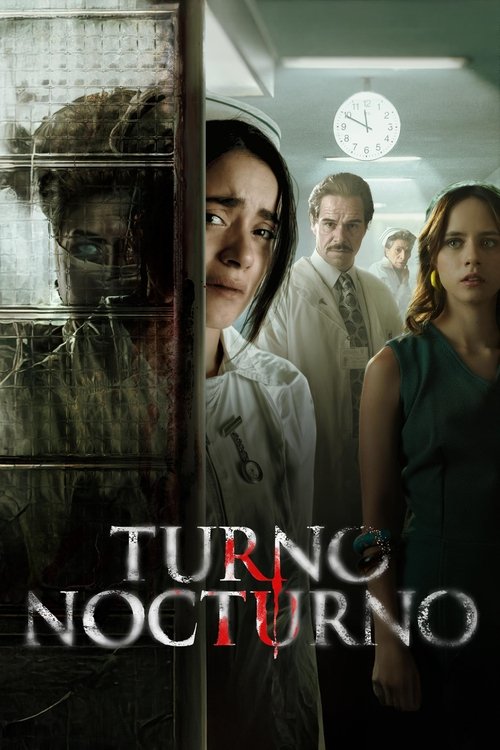Turno nocturno

Plot
Turno nocturno, a 2012 Spanish-Argentine supernatural drama film directed by Lisbeth Sanchez Poncela, unfolds as a gripping narrative that delves into the lives of two women, uniting their stories across time to create an emotionally charged tale of survival, healing, and the indelible mark of trauma. The film's narrative centers around Adriana, a young nurse, portrayed by Sara Binielli, who has an unshakeable past of domestic abuse. Adriana's tumultuous past is interspersed throughout the film in fragmented flashbacks, providing a glimpse into her torrid relationship with a partner who slowly wore her down through emotional degradation and eventual physical violence. Adriana finds solace in her vocation as a nurse at the local hospital, where she seeks refuge in her work as a respite from her daunting reality. It is as a night shift nurse that Adriana's life intersects with that of Sofia, a former nurse at the hospital who perished under mysterious circumstances years prior. As soon as Adriana starts her nocturnal shifts, the unexplained and inexplicable appearances of Sofia commence. At first, Adriana is disoriented by the ghostly apparition, unsure of the reason behind these supernatural encounters. However, as the ghost's appearances intensify and become more significant, Adriana starts to associate them with pivotal moments in her life. It becomes evident that Sofia's ghost is not merely a benevolent whisper in the dark but a manifestation of the systemized trauma and the cyclical nature of abuse that Adriana endured. The film masterfully weaves the convergence of Adriana's past, present, and the nascent horror of her nocturnal experiences into an unsettling yet fascinating narrative. Sofia, through her appearances to Adriana, unlocks a gateway of communal rage that transpires from beneath the somber veils of the malevolent societal systems devised by men. Sofia also provides an insight to the fragmented life of Adriana, a life she has intentionally denied by denying the interlink between her present-day anguish and her tortured past. This enigmatic ghost forms a bond with Adriana and navigates the labyrinth of suffering and recrimination that defines their convoluted fate. In doing so, the ghost inspires Adriana to confront the systemic causes of her trauma and the debilitating past. Lisbeth Sanchez Poncela masterfully employs the supernatural as a vehicle to transport her viewer into Adriana's memories, thus solidifying the bonds of empathy between Sofia and Adriana's narratives. Moreover, the director adroitly unfolds the film's mysterious climax through scenes of hushed chaos and heart-wrenching revelations. Throughout the narrative, film audiences are beckoned to confront the persistent issue of domestic abuse – whether the perpetrator is a seemingly devoted partner or an apparently benevolent guardian – a truth that will, ultimately, resurface in the life of the next tortured soul within the confines of the very same institution – an ever-moving testament to the unending story of suffering forged, decade by unendurable decade. The hauntingly atmospheric soundtrack studded with enigmatic silence weaves alongside the stark cinematography to create an eerie backdrop for the unravelling of the psychological mysteries plaguing the protagonists. Ultimately, the complex psychological struggle between Adriana and Sofia – ghosts who are inextricably tied to the night shifts that tie them bound – unfolds under Poncela's guiding vision – Turno nocturno, an artful, engrossing plunge into the dark recesses of unhinging human bonds, time congealing reality and compelling a moment for the long silent sufferers at all levels.
Reviews
Ashton
Not bad.
Payton
Clichéd plot.
Sutton
Given the trajectory of the plot, a domestic adaptation could be made: a character who was abused as a child, grows up with fractured sanity, unknowingly committing murder.
Everett
Why didn't he seek revenge for over a decade? Why wait until this specific month when the female lead arrives?
Recommendations




